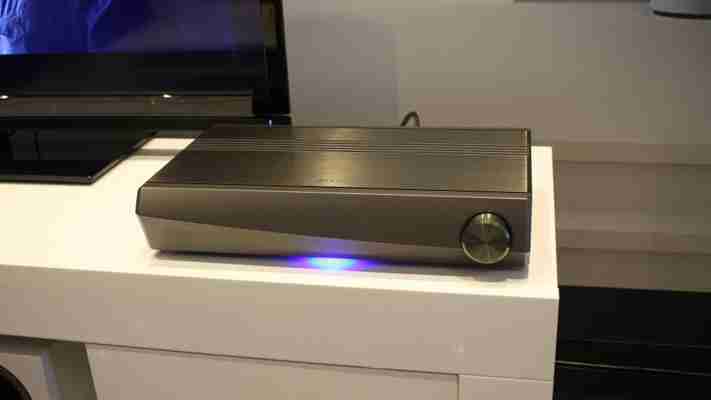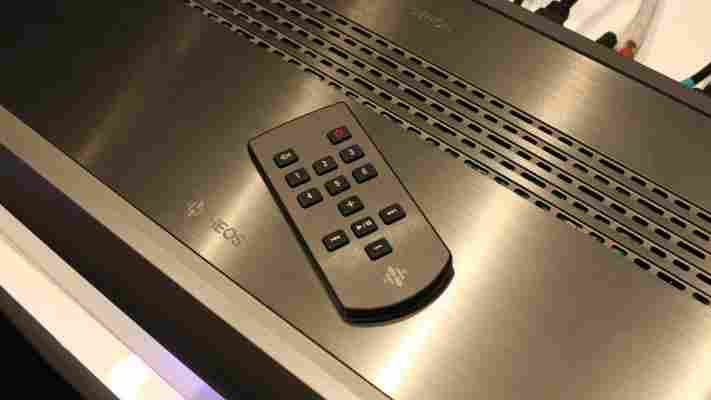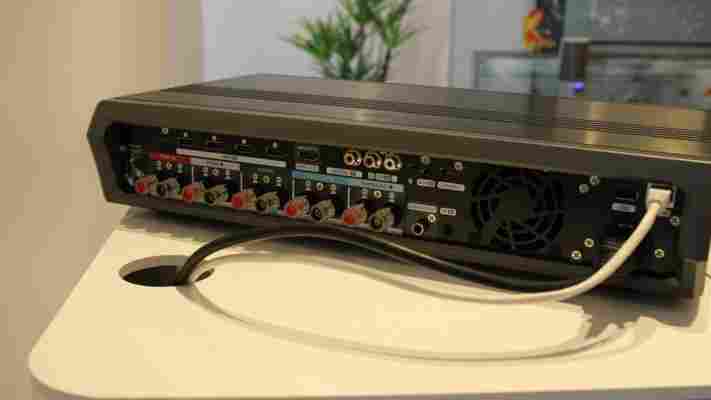This week we got to see the latest HEOS multi-room audio products. HEOS is Denon’s entry in the fiercely competitive multiroom speaker range, which is dominated by Sonos . Not only do the names sound similar to say, Denon's take uses odd numbers 1-3-5-7 to differentiate its models too.
Launched in 2014 as something of an off-shoot brand, Denon is now bringing it back into its core range. That means the company's new high-end AV Receivers will be ‘powered by HEOS’ and released under the Denon brand, where previous speakers brandished a HEOS logo with less emphasis on its parent brand. Denon’s plan here is to “transition HEOS from a product name to an ingredient”.
While this year’s ‘HS2’ updates to the HEOS range look identical to their predecessors, they bring some notable upgrades below the hood. All models now support high-resolution audio, currently with WAV, ALAC and FLAC support at 192kHz/24-bit. DSD and AIFF support are promised as future updates, though we can't imagine many will be hankering for such leftfield audio formats.
New, too, with the HS2 models is built-in support for Bluetooth. The previous models required a USB dongle to add Bluetooth. With it now built-in, the USB port is free to be used to access music stored on USB storage. Music played off a USB drive can be wirelessly distributed to other HEOS speakers on your network as well as directly played on the speaker.
For more typical use HEOS currently supports Spotify, Tidal, Napster, Deezer and TuneIn radio among other services. The most notable absentee is Apple Music, but Denon stated it is in talks with Apple and hope to have the service by the end of the year.
As with multiroom systems from the likes of Sonos, Bose and Samsung, there’s a multitude of speaker options depending on where you’re planning on placing them. The HEOS 1 (£199) is the smallest option, but can also be used as a stereo pair if you buy two. It’s also humidity resistant, meaning it can be used in damp environments such as bathrooms.
There’s an optional ‘Go Pack’ (£79), that provides a twist-on battery base that delivers 6 hours of use as well as covering the ports with a silicone cover to make the speaker splash resistant. It makes the HEOS 1 as eminently portable as multiroom speakers from Libratone that have a built-in battery.
For those needing bigger sound, perhaps for a larger room, there’s the option of the HEOS 3 (£249), HEOS 5 (£349) and HEOS 7 (£499), in addition to the HEOS Homecinema soundbar and wireless subwoofer (£599). As with all multiroom systems, you’re free to expand your system by adding more and more speakers down the line.
Like Sonos, Denon also has HEOS devices for people who have existing hi-fi speakers they want to integrate and upgrade with multiroom support through its HEOS Link and Amp devices. For networking, the HEOS range allows for either 802.11ac, which is an improvement over most rivals, as well as a wired Ethernet connection.
For those who have older HS1 HEOS speakers, you can still add in HS2 speakers to your system. These can then be used as master speakers for high-resolution audio, which will then get downsampled for playback on older speakers.
HEOS AV Receivers
The most interesting AV Reciever on show was the all-new HEOS AVR. Its design is drastically different from any Denon-branded AV Receiver or most the models on the market for that matter. The unit itself has a sleek, futuristic design that intentionally does away with a cluttered display. The idea is to make multi-speaker audio more approachable and stylish, just as Sonos and HEOS have done for multi-room audio.

A basic remote control is included that handles the most used functions. It supports HDMI-CEC, so you can use your TV’s remote control instead if desired. In my demonstration, an Apple TV was connected to the HEOS AVR and the Apple TV could control the output volume. There are four HDMI inputs with support for Ultra HD and HDR, which you'd expect these days from such a device.

The HEOS AVR only supports 5.1 audio, which is basic compared to typical modern Denon AVRs (see below), but it does have a trick up its sleeve. While the front stereo speakers and subwoofer can be wired to the AVR, you can wirelessly connect HEOS 1 speakers to use as rear satellite speakers, helping cut down on clutter.

The HEOS AVR isn’t expected to launch until February 2017 and I was told it would retail for around €899 (around £700). It should pose an interesting proposition for those wanting a more immersive home cinema experience than the HEOS Homecinema soundbar can provide. Certainly sat watching Skyfall was an engaging experience but your take will obviously be dependent on what loudspeaker and subwoofer you opt to connect to the HEOS AVR, not forgetting the additional expense these will entail.
As mentioned, Denon is also adding HEOS support into its more high-end AV Receivers, including the AVR-X4300H (£1,199) and AVR-X6300H (£1,899). These AVRs have plenty of cinephile-friendly features including support for Ultra HD and HDR, Dolby Atmos, DTS:X and Auro3D audio via an upgrade. The main difference between models, aside from price, is the X4300H supports up to 9-channel audio, whereas the X6300H will go up to an immersive 11-channel audio. They both include a high-performance 192kHz/32-bit DAC and are launching in October.
The loud exhibition floor at Denon's event didn’t prove the best place for auditioning speakers but we’re expecting to get the full range of HEOS HS2 kit in the near future, so check back for full reviews. However, on the surface at least, Denon’s revamped HEOS range should give Sonos a run for their money and, provided you have the cash for a full system complete with suitable speakers, the HEOS AVR can form the basis of a stylish a and clutter-free home cinema experience without any major sacrifices to achieve it.

